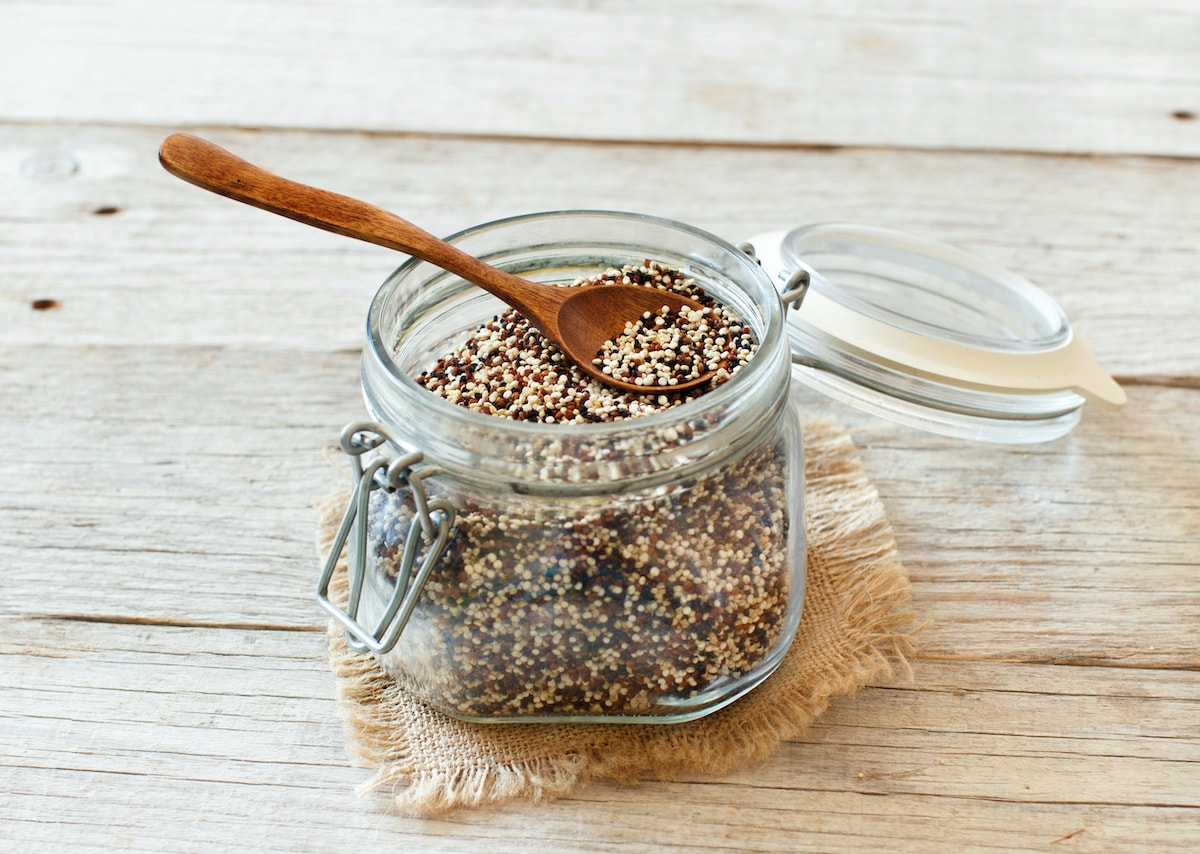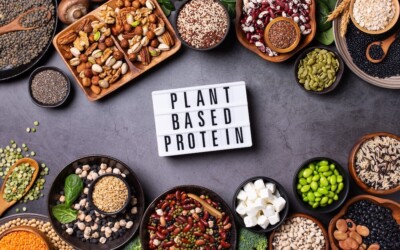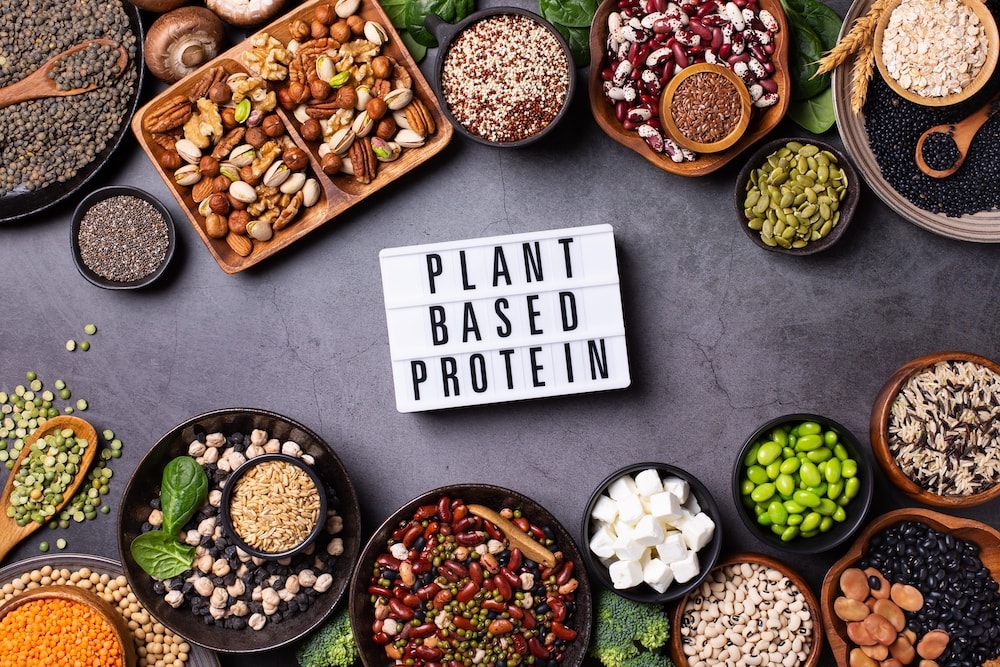Table of Contents
Introduction
When we think of Omega-3 fatty acids, fish oil often springs to mind. However, there are plenty of plant-based options packed with these beneficial fats, which are crucial for brain health, reducing inflammation, and overall well-being. Whether you’re vegan, vegetarian, or just looking to diversify your diet, here are seven great plant sources of Omega-3s that can fit easily into your meals.
1. Flaxseeds – Plant Sources of Omega-3

Flaxseeds are tiny powerhouses when it comes to Omega-3 fatty acids, specifically alpha-linolenic acid (ALA). Just one tablespoon of ground flaxseeds can provide about 1.6 grams of ALA. Sprinkle some over your morning oatmeal, blend them into smoothies, or use them as an egg substitute in baking by mixing one tablespoon of ground flaxseed with three tablespoons of water.
2. Chia Seeds

Chia seeds not only offer a good amount of Omega-3s but are also rich in fibre and protein. These little seeds form a gel-like substance when soaked, making them perfect for puddings or as a thickening agent in recipes. Two tablespoons of chia seeds pack in roughly 5 grams of ALA, making them an easy and versatile addition to any diet.
3. Hemp Seeds

Hemp seeds are a great addition to the list, as they contain a healthy ratio of Omega-6 to Omega-3 fatty acids, which is vital for balancing inflammation in the body. They are also loaded with protein and other nutrients. You can sprinkle hemp seeds on salads, add them to smoothies, or incorporate them into homemade granola bars for an extra health boost.
4. Walnuts – Plant Sources of Omega 3 Fatty Acids

Walnuts are one of the nuttiest (and tastiest) ways to add Omega-3s to your diet. A quarter cup of walnuts can give you about 2.5 grams of ALA. They’re great for snacking, baking, or even as a crunchy salad topping. Plus, their rich, buttery flavour makes them a popular choice in various dishes.
5. Brussels Sprouts

Surprisingly, certain vegetables like Brussels sprouts also contain Omega-3 fatty acids. While you’d need to eat quite a few to get the same amount as you would from seeds or nuts, they offer a good amount when eaten regularly. Roasting them brings out a nutty flavour that can turn a Brussels sprout sceptic into a fan.
6. Algal Oil

While not a whole food, algal oil is worth mentioning as a plant-based supplement for Omega-3s. It’s derived from algae and is one of the few plant sources that provide both EPA and DHA, types of Omega-3s that are primarily found in fish. This makes it an excellent choice for those on a vegan diet.
7. Perilla Oil – Excellent Plant Source of Omega-3
Perilla oil, extracted from the seeds of the perilla plant found in Korea and parts of Southeast Asia, is another excellent source of plant-based Omega-3 fatty acids. Rich in alpha-linolenic acid (ALA), perilla oil offers numerous health benefits similar to those provided by other Omega-3-rich oils.

Nutrition research supports the use of perilla oil for its potent anti-inflammatory properties and its ability to help manage cholesterol levels. This makes it particularly valuable for heart health and in reducing the risk of chronic diseases linked to inflammation. While perilla oil may not be as widely recognized as flaxseed or chia seed oil, its health benefits make it a standout choice for those looking to diversify their sources of Omega-3s.
Perilla oil has a distinctive flavour that works well in a variety of dishes. It can be used to dress salads, added to marinades, or drizzled over cooked vegetables, providing a delicious and healthful twist to your meals.
Including perilla oil in your diet not only enriches your intake of essential fatty acids but also supports a healthy, plant-based lifestyle. Its unique properties and versatility make it a must-try for anyone seeking to boost their Omega-3 consumption through plant sources.
Health Benefits of Omega-3 Fatty Acids
Omega-3 fatty acids are more than just another dietary supplement; they are crucial to our overall health. Here’s why increasing your intake of Omega-3s, particularly from plant sources, can be a game-changer for your well-being:
Heart Health
Omega-3 fatty acids are famous for their heart health benefits. They help lower levels of bad LDL cholesterol while raising good HDL cholesterol. They also reduce triglycerides and blood pressure, which can lessen the risk of heart disease over time.
Anti-Inflammation
Chronic inflammation can lead to numerous health issues, from arthritis to heart disease, and even cancer. Omega-3s have anti-inflammatory properties that help reduce the body’s inflammation response, providing relief and protection against these conditions.
Brain Function
These fatty acids are essential for brain health and cognitive function. They play a crucial role in maintaining the structure of your brain cells and have been linked to a reduced risk of neurodegenerative diseases like Alzheimer’s. Omega-3s are also associated with improved mood and a lower incidence of depression.
Eye Health
Omega-3 fatty acids are vital for maintaining eye health. They are a component of the retina, and deficiencies in Omega-3s can lead to vision problems. Regular consumption can help protect against macular degeneration, one of the world’s leading causes of permanent eye damage and blindness in older adults.
Joint Health
Regular intake of Omega-3 fatty acids can help keep your joints healthy, reducing the stiffness and pain associated with rheumatoid arthritis. Their anti-inflammatory effects are particularly beneficial for maintaining joint function and mobility.
By incorporating plant-based sources of Omega-3s into your diet, you not only benefit from these essential nutrients but also from the additional vitamins, minerals, and antioxidants found in these foods. This approach supports a holistic view of health, promoting wellness across various body systems and reducing the risk of many chronic diseases.
The Risks of Omega-3 Deficiency
Neglecting to include sufficient amounts of Omega-3 fatty acids in your diet can have several implications for your health. Omega-3s are essential fats, meaning your body cannot produce them on its own; they must be obtained through diet. Here are some potential risks associated with Omega-3 deficiency:
Poor Mental Health
Omega-3 fatty acids are crucial for brain function and mental health. A deficiency can lead to mood swings, depression, and, in severe cases, cognitive decline. Ensuring adequate intake of these essential nutrients can help maintain optimal brain health and emotional well-being.
Increased Inflammation
Without enough Omega-3s, the body may experience an imbalance in the inflammatory response. Omega-3 fatty acids are known to reduce inflammation, so a lack thereof can lead to persistent inflammation, potentially exacerbating conditions like arthritis, asthma, and heart disease.
Cardiovascular Problems
Omega-3 fatty acids are vital for heart health. They help regulate blood cholesterol levels and maintain the elasticity of blood vessels. A deficiency can increase the risk of heart diseases, such as hypertension and atherosclerosis, by elevating triglyceride levels, increasing blood pressure, and promoting the formation of arterial plaques.
Vision Deterioration
Omega-3 fatty acids, particularly DHA, are important components of the retina. Insufficient levels can compromise eye health, leading to vision problems and increasing the risk of age-related macular degeneration, a leading cause of blindness in older adults.
Weaker Immune Response
Omega-3s play a role in the functioning of immune cells. A deficiency may impair the immune system, making the body more susceptible to infections and slower to recover from illness.
To avoid these risks, it’s important to ensure a balanced intake of Omega-3 fatty acids, especially for individuals who do not consume fish or fish products. Plant-based sources of Omega-3s, as detailed earlier in this blog, are excellent alternatives to help meet dietary needs and support overall health and wellness.
What Experts Say About Plant-Based Omega-3s
Several leading plant-based doctors have highlighted the crucial role of Omega-3 fatty acids in maintaining and enhancing health. Here’s what some of them say:
Dr. Michael Greger emphasizes the importance of Omega-3s in reducing inflammation and preventing chronic diseases. He suggests that sources like flaxseeds and walnuts are not only beneficial for their Omega-3 content but also for their overall nutrient profile which supports long-term health.
Dr. Joel Fuhrman, known for his advocacy of a nutrient-dense plant-based diet, often discusses the critical role of fats like Omega-3s from seeds and nuts in brain health and cognitive function. He encourages incorporating a variety of plant-based sources to ensure a balanced intake of nutrients.
Dr. Caldwell Esselstyn, focused on preventing and reversing heart disease, points out that plant-based sources of Omega-3 fatty acids can help reduce arterial plaque and lower cholesterol levels. He highlights the significance of integrating these fats into daily meals to support cardiovascular health.
Dr. Neal Barnard of the Physicians Committee for Responsible Medicine discusses how Omega-3s from plants can provide all the necessary fatty acids without the risks associated with fish oil, such as contaminants or heavy metals. He supports a diet rich in leafy greens, nuts, and seeds to meet Omega-3 needs effectively.
These experts agree that integrating plant sources of Omega-3s into your diet can lead to significant health benefits, including enhanced mental clarity, improved cardiovascular health, and reduced risk of chronic diseases. They advocate for a diverse intake of plant-based Omega-3 sources to not only meet nutritional needs but also support a healthy, ethical, and sustainable lifestyle.
Our Plant Sources of Omega-3 Routine
Here’s a look at how my husband and I include Omega-3-rich foods in our daily diet:


Walnuts: Most mornings, we sprinkle a handful of walnuts over our oatmeal or blend them into our smoothies. They add a delightful crunch and are a key part of our breakfast.
Brussels Sprouts: Roasted Brussels sprouts are a staple side dish in our dinners. Their hearty flavour complements just about any main course, and they make regular appearances at our table.
Chia Seeds: For a simple and nutritious start, we often prepare chia seed pudding the night before. A mix of chia seeds soaked in almond milk becomes a thick, pudding-like breakfast that keeps us fueled throughout the morning.
Ground Flax Seeds: We regularly add freshly ground flax seeds to our morning oats or smoothies. It’s an easy step that integrates well into our breakfast routine.
Incorporating these foods into our meals ensures we maintain a balanced and enjoyable plant-based diet, filled with natural sources of Omega-3s.
Conclusion
Incorporating more plant-based sources of Omega-3s into your diet isn’t just beneficial for those who avoid animal products; it’s a crucial choice for anyone concerned about their health. Adding flaxseeds, chia seeds, hemp seeds, walnuts, Brussels sprouts, algal oil, and perilla oil into your meals ensures a rich intake of essential fats that support a healthy body and mind. The benefits are vast—ranging from improved heart health and reduced inflammation to enhanced brain function and better eye health. Conversely, a lack of these essential nutrients can lead to increased inflammation, mental health issues, cardiovascular problems, and weakened immune response.
Start experimenting with these ingredients to discover just how easy (and tasty) it is to boost your Omega-3 levels the plant-based way. Whether you’re looking to enhance your overall health or address specific health issues, the right intake of Omega-3 fatty acids can make a significant difference in your quality of life and well-being.
















0 Comments